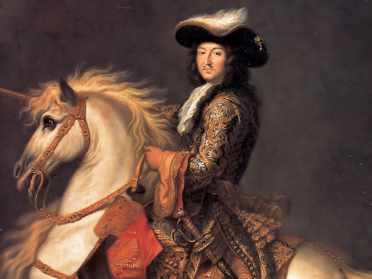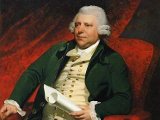France After Louis XIV

Table of Contents
- Legacy of the Sun King
- Louis XIV and the Origins of the French Revolution
- France under Louis XV
- Inability of Louis XVI to Deal with the Financial Crisis
Quick Facts
The French monarchy reached its height during the reign of the Louis XIV (r. 1643, officially from 1661 to his death in 1715).
The Sun King as Louis XIV is often referred to created a model for absolutism, made France Europe's leading political and military power, and increased trade and commerce.
Some historians trace the origins of the French Revolution to the reign of the Sun King, however, France was on his death the most powerful monarchy in Europe showing no signs of the threatening revolution.
Successor of Louis XIV, Louis XV (1715-1774) was only a child when he ascended to the French throne.
The expenses for the wars, poor financial policy and extravagant lifestyle of Louis XV severely impoverished the treasury.
Shortly before his death, Louis XV limited the power of the parlement which opposed the fiscal reforms. Some historians speculate that this move would perhaps improve the financial state of the monarchy and prevent its fall, however, his successor Louis XVI (1774-1793) halted the process and restored the power of the parlement.
Louis XVI yielded to conservative aristocracy blocking radical fiscal reforms.
The king listened to his finance minister Jacques Necker and convoked the Estates General on May 5, 1789, to deal with the alarming financial situation, however, he refused voting by deputies instead of voting by orders.
Under the pressure of conservative forces, Louis XVI dismissed the popular Necker on July 11, 1789, which outraged the public and contributed to the storming of the Bastille only three days later.
Faced with a social and political unrest, Louis XVI restored Necker as finance minister but it was too late to stop the French Revolution and subsequently the fall of the French monarchy.
Legacy of the Sun King
The French monarchy reached its height during the 72-year long reign of Louis XIV (r. 1643, officially from 1661 to his death in 1715), also called the Sun King. He established himself as an absolute ruler and created a model for absolutism (a form of government that was adopted by most European rulers and was a predominant political organization in Europe most of the 18th century), made France Europe’s leading political and military power, and increased trade and commerce. By the end of the 17th century, the French monarchy was the most powerful, the most populous (excluding Russia) and the wealthiest country in Europe. Louis’s style of government became a model for other European monarchs, while much of Europe emulated the French lifestyle, goods and even French language which became the language of European diplomacy and remained lingua franca until the mid-20th century.
Louis XIV and the Origins of the French Revolution
Although the rule of Louis XIV is considered the golden age of the French monarchy as well as of French art and culture, some historians argue that the origins of the French Revolution can be traced back to his rule. There is no consensus among the historians on the issue, however, the Sun King did empty the treasury to finance his wars, extravagant lifestyle and of course, to build the splendid Palace of Versailles. Furthermore, the revocation of the Edict of Nantes in 1685 that was followed by emigration of about 200,000 Huguenots contributed to the decline of the French economy as many of them were artisans and merchants. His religious policy also contributed to formation of several anti-French alliances although these were primarily a reaction to his military activities. However, his grandson and successor Louis XV (r. 1715-1774) inherited the most powerful monarchy in Europe in which there were no signs of trouble that could threaten the monarchy.
France under Louis XV
Like his grandfather, Louis XV was only a child when he ascended to the French throne. During his minority, the monarchy was governed by Philippe, duke of Orleans until his death in 1723 when the regency was taken over by Cardinal Andre Hercule de Fleury. After the latter’s death in 1743, Louis XV assumed personal rule. He recognized the need for reforms, particularly of the tax system which privileged aristocracy and clergy, however, he gave up the reform efforts due to the opposition of the tax privileged orders. The successor of the Sun King also was not able to keep France out of wars which further impoverished the treasury as well as diminished France’s foreign prestige after the defeat in the Seven Years’ War (1756-1763) which forced the French to give up their possessions in North America. Nevertheless, financial difficulties did not stop him from his extravagant lifestyle or force him to carry out the needed fiscal reforms until it was too late.
Inability of Louis XVI to Deal with the Financial Crisis
Shortly before his death, Louis XV supported his chancellor Rene Nicolas Charles Augustin de Maupeou in his efforts to limit the power of the parlement which blocked the fiscal reforms but his successor, Louis XVI (1774-1793) halted the process and restored the power of the parlement. This move prevented his controller general Anne Robert Jacques Turgot to carry out any notable reforms and the king dismissed him in 1776. One year later, Louis XVI appointed Jacques Necker who was expected to save the financial crisis, however, his loans to finance the French support to the American Revolution and revenge to the British for the defeat in the Seven Years’ War seriously increased the public debt. He was dismissed in 1781 after publishing the Compte rendu au roi (“report to the king“) revealing the disastrous financial situation. Necker was recalled in 1788 due to failure of his predecessors to improve the financial state. He recommended the king to convoke the Estates General and to allow voting by heads but Louis XVI refused to change voting by order and dismissed Necker for the second time on July 11, 1789, just three days before the storming of the Bastille. The king restored the popular finance minister a few days later but he was unable to prevent the fall of the French monarchy.




